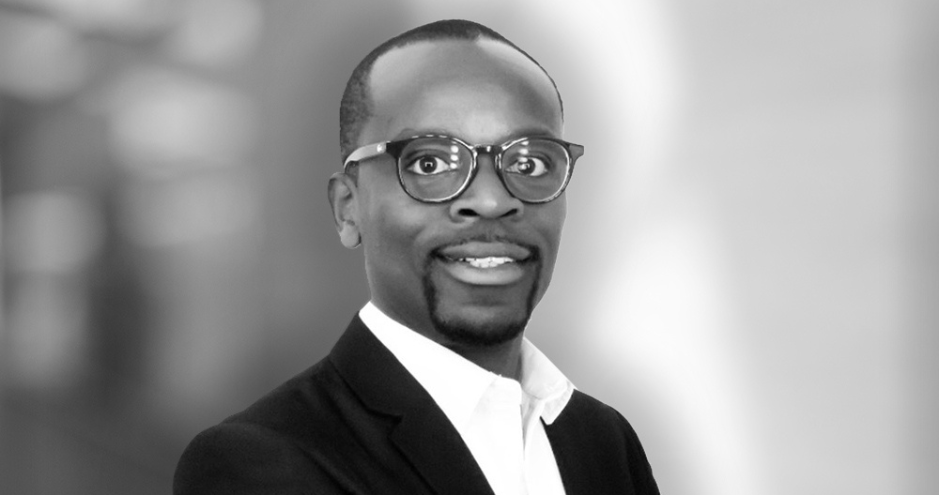EMBA Alum Takes the Entrepreneurial Route to Pivot from Fossil Fuels to Renewables
This veteran of the energy industry used his EMBA from HEC Paris to help him pivot from fossil fuels to entrepreneurship in renewables.

Thierry Gahamanyi, EMBA ’19, founded his startup, MAGMA Energy, in the effort to reduce the production costs of gas for renewables.
The idea for MAGMA Energy came gradually to the 41-year-old over a successful, 18-year career in negotiating and justifying purchases of biomethane injection stations for Engie and GRDF, two French energy behemoths. There, he realized there was a niche to be filled using his knowledge of the nuanced financial levers previously available only to large energy groups. Though the seed of the idea for MAGMA Energy may have been planted through his extensive work experience, Thierry built the scaffolding for his entrepreneurial ambitions by developing a concrete business model at the HEC Paris Executive MBA.
Though still in its infancy, his firm has already met considerable success. Since its inception in 2020, MAGMA Energy has completed two tenders for purification systems for agricultural methanization projects, with a third grouped purchase in September 2021. These projects will eventually produce 160,000 Mwh (Megawatt Hours), which is the equivalent consumption for 45,000 French households, or the refueling of 600 buses running on natural biofuels.
He sat down with us to discuss his thought process that led him from a role as a key decisionmaker for two of France’s most vaunted traditional energy firms to blazing his own trail, powered by competitively priced renewables, of course.
Why did you choose the HEC Executive MBA?
I was at a stage of my career where I was actively looking for new professional opportunities.
I had always wanted to play a meaningful role in the energy transition, and my preferred way to achieve this was through entrepreneurship. When I came to HEC, I had the idea for a project that would become MAGMA Energy, but it wasn't structured; HEC helped turn the idea into a concrete reality. Before I arrived, I didn't have the hard skills in a few key areas like operations, finance and marketing, to make things work. This is what I came to look for. I had my own technical skills, but there were knowledge gaps that needed to be filled. At HEC, there are experts in the field to challenge all the points that helped me grow my project.
I used my capstone project to design my current business model. Six months after graduation, I started MAGMA Energy .
As an Executive MBA student, how were you were able to juggle work, family and the course?
When I was doing my EMBA, I was still working for my previous company. As such, I needed to take time off in order to go to HEC. The workload was heavy. I did one day a week every Tuesday, which meant that for about two years, I didn't have a significant vacation, which was a challenge for me and my family. I was lucky to have a family who encouraged me with everything that I did. One piece of advice I would give to anybody considering an EMBA would be to consider it a project to be undertaken by the whole family, and not just yourself.
What are some things you may have learned – either in class or from your classmates – that you still use today?
The whole EMBA journey was very interesting, but the most important was the lesson of believing in yourself, in daring. We learned that the only real barriers on the way are the ones we fix for ourselves.
I think that as EMBA participants, we learned as much from each other as we did from our classes. It was so interesting to be able to discuss the different topics with colleagues who come from various fields and nationalities. A particular point of value was the opportunity to exchange with colleagues who do not work in the same sector as I do. Luxury professionals, for example, would seem to be totally unrelated to what I do, but it turned out that their operational practices could apply to my work as well. I help farmers transform their waste into energy, which would seem to be about as far from luxury as possible, but, there’s a fundamental need to be customer-centric in what I do, which is exactly the type of challenge luxury professionals face on a daily basis. For example, when a luxury customer buys jewelry, they want to make a statement. In my case, when a farmer builds a biomethane plant, they want to make a statement, too, in this case about their commitment to energy transition.
Another example was in discussions I had with classmates that work in aeronautics. We were discussing the intricacies in maintenance for planes, and I thought: "Why can't we operate in a similar way with our recycling plants?”
What are some of your favorite memories from the EMBA program?
In Doha during my Energy Specialization, I will always remember the discussion I had with the CEO of Qatar Petroleum, one of the largest gas producers in the world. They produce 77 MTA (Millions of Tons per Annum) of gas, which is enough to power the whole world and grant them several billion euros of turnover. All the while, they're so focused on the energy transition. It showed me that even if you have a stable business, you need to keep your mind on how the world is evolving, because it will affect you sooner or later. The lesson I learned there was the importance of always being open-minded.